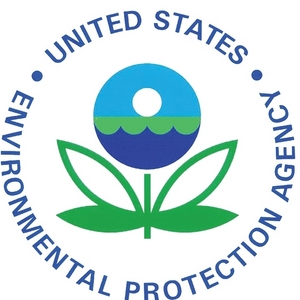EPA issues Notice of Violation to Imperial Petroleum, e-Biofuels

December 19, 2013
BY Ron Kotrba
U.S. EPA has finally issued a Notice of Violation to Imperial Petroleum and its wholly owned subsidiary e-Biofuels LLC for generating more than 33.5 million invalid D4 renewable identification number (RIN) credits under the renewable fuel standard (RFS) program between July 2010 and June 2011. EPA stated the agency has determined e-Biofuels was not the producer of the fuel that corresponded with the 33.5 million D4 RINs.
The move comes months after the federal government charged the two companies, its executives and some of its suppliers with 88 counts of conspiracy, wire fraud, false tax claims, false statements under the Clean Air Act, obstruction of justice, money laundering and securities fraud.
The American Fuels and Petrochemical Manufacturers, a lobby organization for Big Oil, is predictably using the announcement, which hasn’t come as a surprise to anyone, to discredit the RFS and the EPA’s management of the program.
Advertisement
“Add today’s announcement to the long list of problems created by an unworkable renewable fuel standard as further proof that Congress should consider repeal or significant reform in 2014,” said Charles Drevna, president of AFPM. “EPA unfortunately continues to hold obligated parties responsible for illegal activities perpetrated by biodiesel producers such as e-Biofuels.”
While EPA lists on its website individual obligated parties that were issued NOVs for purchasing invalid RINs in similar previous cases, the agency has not listed any NOVs issued to purchasers of the invalid e-Biofuels RINs yet.
“Following the EPA’s initial imposition of penalties against obligated parties who innocently relied upon buying government-mandated quantities of biodiesel from EPA-registered producers on an EPA-controlled trading system, the industry developed due diligence programs designed to reduce the risk of purchasing fraudulent RINs,” Drevna continued.
Advertisement
EPA is expected to finalize its RIN Quality Assurance Plan rule any time now, as the proposed rule has been in effect all year. This is expected to drastically reduce the potential for RIN fraud in the market and provide protections to obligated parties through third-party QAP providers that verify RINs with degrees of assurance (QAP-A, QAP-B).
“This fraud is disappointing for everyone,” said Ben Evans, director of public affairs and federal communications for the National Biodiesel Board, “but it is important to remember that these are isolated cases from several years ago, and despite what RFS critics would like us to believe, they do not show that the RFS is broken any more than an isolated case of trading fraud shows the stock market is broken. Today and historically, the petroleum sector has had a number of options for verifying RINs, including the voluntary quality assurance plans being offered by the private sector.”
Evans said the RFS was clearly set up as a buyer-beware program, largely because the petroleum sector wanted more flexibility in trading credits and meeting their obligations.
“Everyone involved in these markets knew that and understood the need for vetting and due diligence to verify that the RINs they bought were legitimate,” Evans said, “just as a convenience store bears the responsibility to ensure that the cash it accepts isn’t counterfeit.”
Related Stories
The U.S. EPA on March 24 asked the U.S. District Court for the District of Columbia to dismiss a lawsuit filed by biofuel groups last year regarding the agency’s failure to meet the statutory deadline to promulgate 2026 RFS RVOs.
The USDA on March 25 announced it will release previously obligated funding under the Rural Energy for America Program To receive the funds, applicants will be required to remove “harmful DEIA and “far-left climate features” from project proposals.
2025 International Biomass Conference & Expo concludes as largest event in a decade and unparalleled industry insights
The 2025 International Biomass Conference & Expo, held March 18-20 in Atlanta Georgia, featured of insightful discussions, cutting-edge technology showcases, and unparalleled networking opportunities.
Nearly 1.52 billion RINs were generated under the RFS in February, down more than 25% when compared to the 2.04 billion that were generated during the same month of last year, according to data released by the U.S. EPA on March 20.
The U.S. EPA on March 20 published updated SRE data showing that four new SRE petitions have been filed under the RFS in the past month. According to the agency, 156 SRE petitions are currently pending.
Upcoming Events










